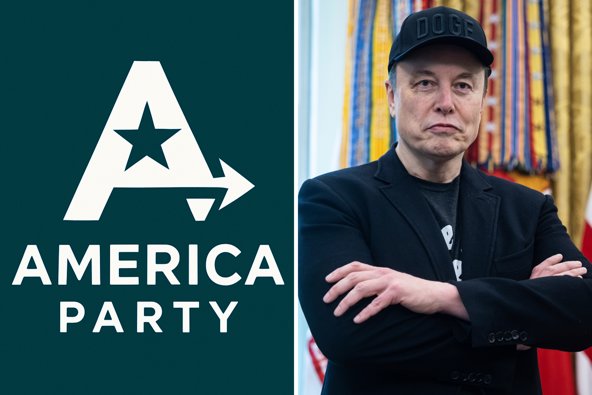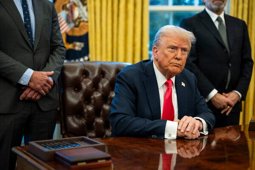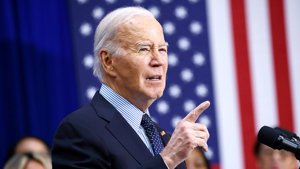
Musk’s America Party Faces GOP Resistance
Elon Musk’s launch of the “America Party” draws skepticism from Republicans and experts, highlighting Trump’s continued dominance.
Musk Breaks With Trump, Launches New Political Party
Elon Musk, billionaire CEO of SpaceX and Tesla, announced the formation of the “America Party” on July 5 in a post on X, declaring it would “give you back your freedom.” The move marks a public rift with President Donald Trump and the Republican Party, following Trump’s signing of a sweeping tax and domestic policy bill that Musk strongly opposed due to its impact on the federal deficit.
The split has intensified public debate over the future of the Republican Party and the broader appetite for a viable third party in American politics. Musk, who was once considered a major ally and donor to GOP causes, cited fundamental disagreements with the party’s current direction as motivation for his new political venture. In the 2024 election cycle, Musk contributed nearly $295 million to Republican candidates, but experts say financial clout may not translate into widespread political influence.
GOP Strategists, Experts Dismiss Third-Party Prospects
Republican strategists were quick to pour cold water on Musk’s initiative. “Elon’s effort will go nowhere,” GOP consultant Matt Gorman remarked, adding that Republican candidates would overwhelmingly prefer a Trump endorsement to Musk’s financial backing. “If given a choice between a Trump endorsement or $20 million in ads from Elon, it’s not even a contest. They’d take the Trump endorsement every single time.”
Political columnist Kristin Tate echoed this sentiment, stating, “Trump is the beating heart of the Republican Party right now.” She argued that Musk’s third-party effort is doomed to fail and that most Trump supporters will view it as hostile, while Democratic voters are unlikely to embrace Musk either. Tate added, “Musk would be better off trying to shape politics from within the Republican Party.”
Some analysts, such as Harvard Kennedy School professor Alex Keyssar, acknowledge that there is growing frustration with the two-party system in the U.S., which could open the door to third-party candidates at the state and local level. However, Keyssar noted that legal and procedural hurdles make it challenging for new parties to gain traction nationally, especially given existing ballot access rules.
Recent polling underscores these challenges. While 49% of Americans say they are open to a third party in principle, only 23% would support one founded by Musk, according to a Quinnipiac University survey. The data suggests a disconnect between general dissatisfaction with existing parties and enthusiasm for Musk as an alternative leader.
Trump, GOP Remain Unmoved by Musk’s Political Gambit
The rift between Musk and Trump began to show in May, following Musk’s departure from the Department of Government Efficiency (DOGE) and public disagreements over the “big, beautiful bill.” Trump, for his part, has dismissed Musk’s “America Party” as a nonstarter, stating, “Third parties have never worked, so he can have fun with it—but I think it’s ridiculous.”
Some observers warn that Musk’s new party could draw away a small fraction of Republican voters, potentially acting as a spoiler in closely contested elections. However, with Trump’s influence over the GOP base still strong, analysts doubt that Musk’s movement will pose a serious challenge to Republican unity or the party’s electoral prospects in the near term.
As political tensions simmer, the “America Party” may test the boundaries of U.S. electoral politics, but most experts agree that Trump remains the central force within the Republican Party—and that third-party experiments, even from high-profile figures like Musk, face daunting odds.






